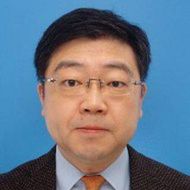Japanese politicians tussle over power and speaking rights on Taiwan
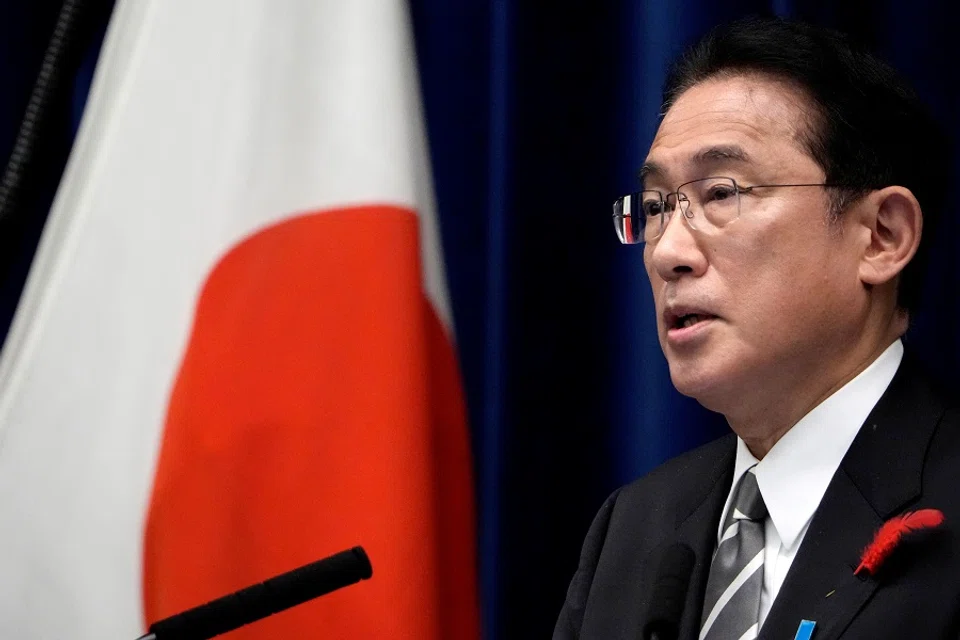
At a Taiwanese think tank forum on 1 December, former Japanese Prime Minister Shinzo Abe said, "A Taiwan emergency is a Japanese emergency, and therefore an emergency for the Japan-US alliance." His remarks drew much attention; the Chinese foreign ministry even summoned the Japanese ambassador to China for an emergency meeting to register its displeasure.
Under the 2021 supplementary budget, the Japanese government approved 773.8 billion yen (S$8.3 billion) in additional defence spending - the largest amount lawmakers have been asked to approve - bringing the overall budget to a record 6.1 trillion yen, or 1.09% of Japan's GDP. Japan is also considering revising its National Security Strategy next year.
Does Abe's remark imply a major change in the Japanese government's Taiwan policy? Why does his position appear to be even clearer than the US's? As China and Japan welcome the 50th anniversary of the normalisation of diplomatic ties between both countries next year, how will the Taiwan factor affect China-US-Japan relations in the future?
Domestic backdrop to Abe's remarks
Firstly, the domestic political struggle in the transition from Abe's Liberal Democratic Party (LDP) to the new Japanese Prime Minister Fumio Kishida's LDP.
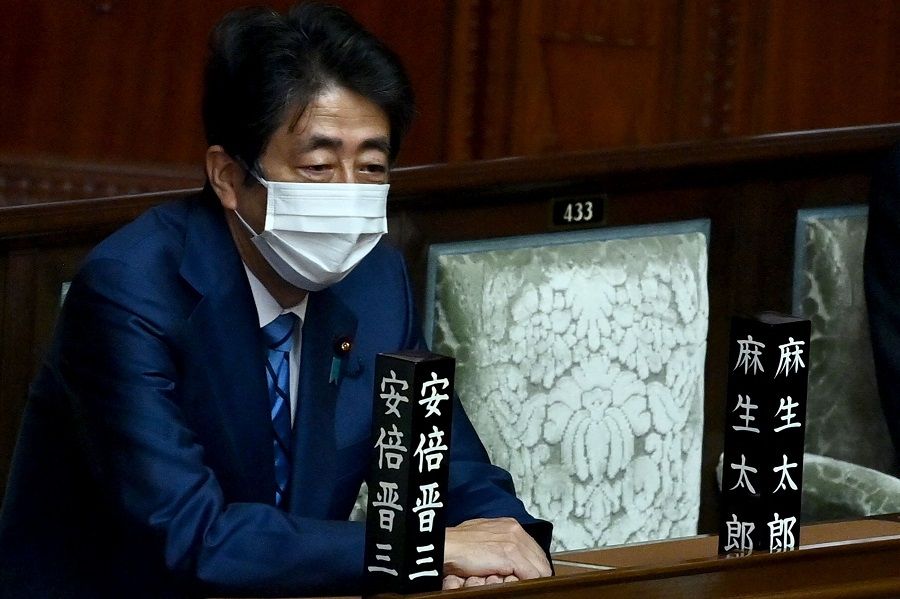
Kishida won the LDP's presidential election in September and led the party to win the lower house election in late October. The LDP's internal power structure is shifting from Abe's LDP to Kishida's LDP.
During the presidential election, Kishida relied on the support of veterans and the main factions of the LDP to win; this included the support of Akira Amari, Minister in charge of Economic Revitalisation during the second Abe government, which helped Kishida win over the Aso faction. Whereas Abe's support for Sanae Takaichi dispersed the votes of the top contender Taro Kono.
Following his election as president of the LDP, Kishida appointed Amari as LDP secretary-general, and Takaichi as chair of LDP's Policy Research Council (with Tatsuo Fukuda to head the party's General Affairs Committee). This meant there would be two senior LDP leaders representing the Abe-Aso system. This move drew flak from the public, who criticised Kishida for returning favours and continuing Abe politics. Coupled with the fact that the scandal-tainted Amari did not enjoy a good reputation, it was impossible for Kishida not to read the signs.
But during the lower house election, Amari resigned from his post as LDP secretary-general after losing in his district. Kishida then decided to appoint Japanese Foreign Minister Toshimitsu Motegi as LDP secretary-general, changing the two-on-two configuration in the party's top leadership to three-on-one, which helped Kishida consolidate the political base of the party.
This implies that the Japanese political arena is getting younger, and this trend would further develop in the next few years.
Young LDP lawmakers making their presence felt
Secondly, the new replacing the old in Japanese politics meant that factional politics in the LDP would be reorganised, making it possible for the Kishida faction to return to the peak era of its predecessor, the Kochikai.
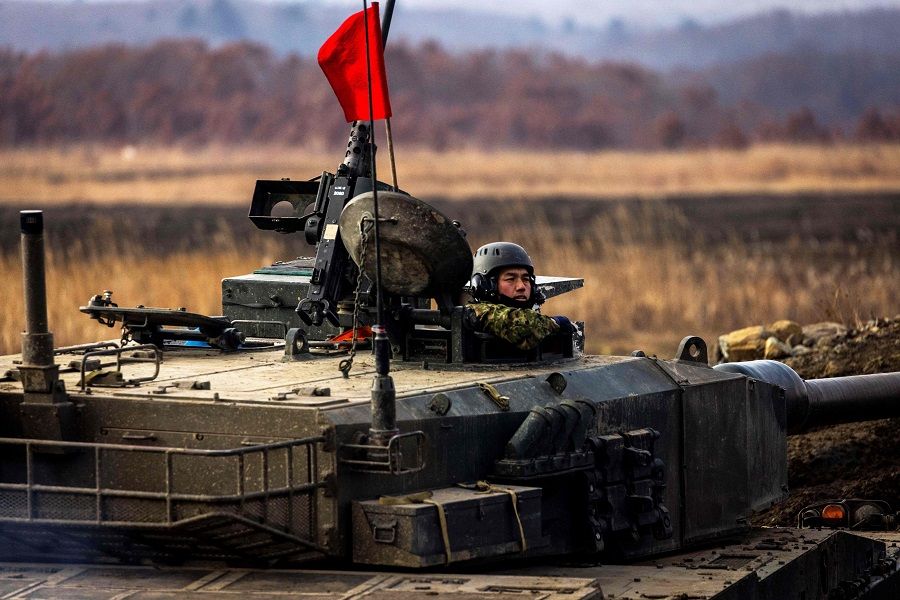
Prior to the presidential election, roughly 90 young LDP Diet members formed "Group for Renewing Party Spirit", a new group protesting against the party being led by the old guard (the average age of the four most important officials in the LDP is 72). In response to such calls for party reform, Kishida boldly proposed that senior party leaders - the three most senior LDP officials apart from the president - would serve for one year each term, for a maximum of three consecutive terms. This proposal directly targeted Toshihiro Nikai, who had held the position of LDP secretary-general for five years.
After Kishida became LDP president, he appointed the young Fukuda, who has only been elected three times to the lower house, as chairman of the General Council, the LDP's third highest position. At the same time, Fukuda is also the chairman of the Group for Renewing Party Spirit. This not only satisfied the requirement of electing younger officials, but also provided an opportunity for Kishida to unite young lawmakers in the party.
In the recent lower house election, older officials aged above 70 years old did not perform well, and were only elected 43.3% of the time, lower than the 55.7% in the general election four years ago. At the same time, officials in their 40s were elected 45.5% of the time, an increase from the previous 39.7%. This implies that the Japanese political arena is getting younger, and this trend would further develop in the next few years.
Reassessment of LDP's policy direction
At present, the LDP has a higher chance of winning the upper house election next year. If Kishida can lead the LDP to win this upcoming election, it would have an important impact on winning young lawmakers to the Kishida faction.
For example, starting with Shigeru Yoshida, and under conservative rule during the Japanese post-war era, liberals including Masayoshi Ohira, Hayato Ikeda, and others have served as the prime minister numerous times during the Cold War.
If Kishida manages to remain in power for an extended period of time, it implies that the Kochikai may be making a return to mainstream Japanese politics.
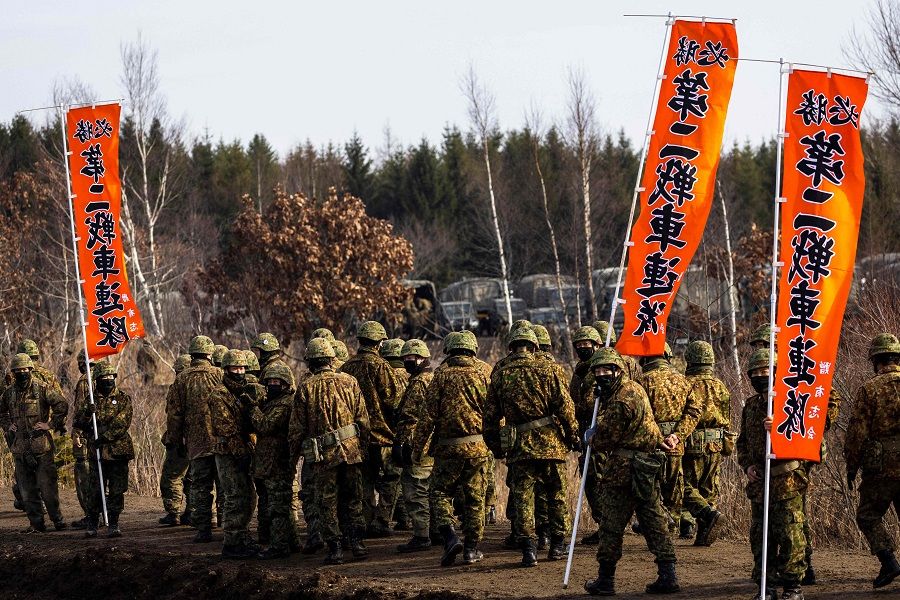
However, after the Cold War ended, neo-conservative ideas became the mainstream, and Kiichi Miyazawa became the last Kochikai politician to rule as prime minister.
If Kishida manages to remain in power for an extended period of time, it implies that the Kochikai may be making a return to mainstream Japanese politics. While Abe's faction has 95 seats (almost twice the number held by members in any other faction), it remains a question mark if this advantage can be maintained. As Abe has always been enthusiastic on security issues and has a bigger say on this topic, his remarks on Taiwan can be taken as being related to the party's power struggle and competition over which path to take.
Whither 'strategic ambiguity'
Second, in recent years, the US has gone from "strategic ambiguity" to "strategic chaos" on the Taiwan issue, which in turn has led to strategic chaos for its allies such as Japan.
In the later part of the Trump administration, there was already a clear inclination to play the Taiwan card in China-US relations. After the Biden administration took office, it emphasised strengthening its network of allies, while its Indo-Pacific strategic framework crystallised into what can be called the 1-2-3-4-5 strategy: one alliance leader, the US; two fulcrums, meaning Japan in the north and Australia in the south; a three-country military alliance for the US, UK, and Australia; a four-sided Quad arrangement involving the US, India, Japan, and Australia; and a Five Eyes intelligence alliance involving the US, UK, Canada, Australia and New Zealand. These US-led frameworks all have Taiwan among their strategic considerations.
...there is no consensus within Japan on whether to intervene in the Taiwan Strait.
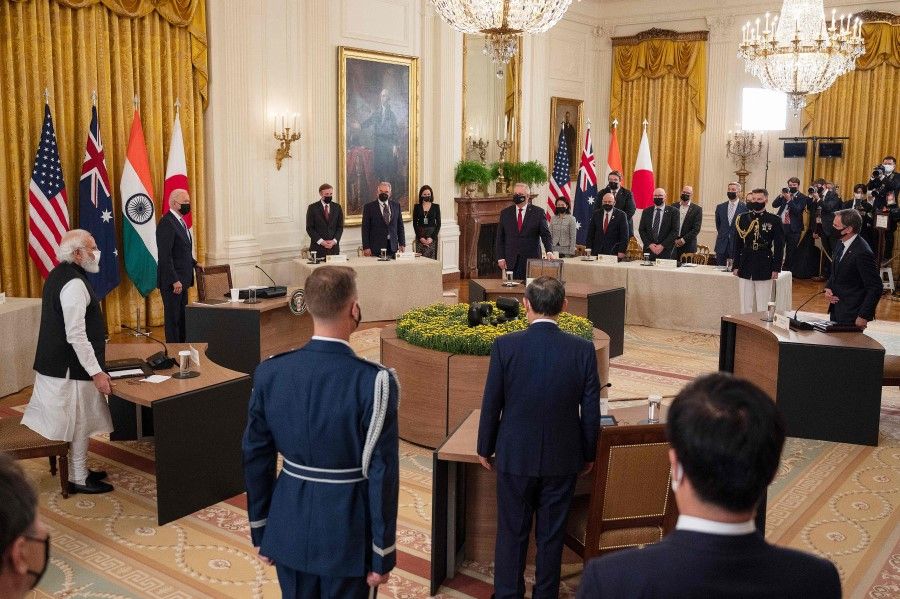
US politicians' interview comments about protecting Taiwan have led to discussions of whether the US is abandoning its strategic ambiguity on Taiwan and moving towards strategic clarity. Some academics have put forward the view that strategic clarity would be better for preventing war. However, the White House quickly clarified that there has been no change to the US strategy on Taiwan, hinting that it will stick to strategic ambiguity. My view is the US stand on Taiwan can be considered a sort of strategic chaos, which has led to strategic chaos for its allies.
As the US's most important Asian ally, on the one hand, Japan has to stand with the US on the Taiwan issue to show its loyalty to the alliance; on the other hand, Japan has also gone with strategic ambiguity, and its policies and mainstream sentiment are aimed at not being sucked into the Taiwan Strait dispute.
Tussling on Taiwan within Japan-US alliance
Amid worsening China-US relations and the escalating Taiwan situation, some Japanese think of Japan as the "bridgehead" in the new China-US Cold War, and that it has to stick closely to the US, while some feel that Japan should watch on the sidelines as the two powers fight and reap the benefits. However, many Japanese think Japan should be a "bridge of communication" between China and the US and maintain strategic flexibility, which would be to Japan's interest. I feel there is no consensus within Japan on whether to intervene in the Taiwan Strait.
The Taiwan issue has to do with China's core interests, and given Japan's history of colonising Taiwan, the Chinese would naturally be especially sensitive about Japan's policy towards Taiwan. Japan's attitude and policy towards Taiwan cannot be viewed and analysed only in the context of China-Japan relations, and can only be seen clearly in the context of China-US-Japan relations. Taiwan is in fact also an important issue in the complex tussle between Japan and the US.
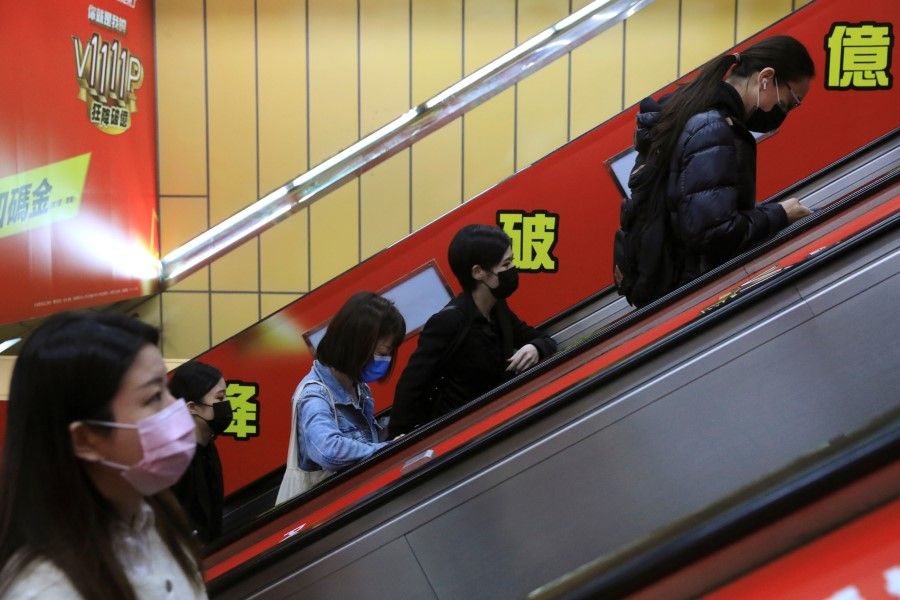
First, looking at post-war history, the US has used the Taiwan issue as a test of Japan's loyalty as an ally, and Japan is heavily influenced by the US in its strategic position. Neither side of the Taiwan Strait was invited to the US-led Treaty of San Francisco, and the treaty only included a general statement about allowing Japan to decide on a Japan-China treaty after recovering its sovereignty.
On the surface, the treaty restored Japan's sovereignty; in fact, it tied Japan to the US's global and Asian strategy. Japanese Prime Minister Shigeru Yoshida was clear that from the perspective of Japan's national interests, it had to establish relations with the Beijing government like the UK, but the US did not give Japan that option.
Abe's comment that a Taiwan emergency is a Japanese emergency seems to be speaking too much on behalf of the US, and somewhat bending the rules.
Next, the US needs a Japan that will fall in line with its own basic stand on Taiwan, but it does not want Japan to make its stand too clear; that is, the US will be the one to lead its alliance, which serves two functions: to be the stronger side protecting the weaker, and to be the stronger side managing the weaker to prevent them from acting recklessly. The US taking the lead over Japan in their alliance determines what Japan says and does in the Taiwan issue, and that it cannot move faster than the US.
Given the sensitive and risky nature of the Taiwan issue, the actions of any US allies have to be measured. If the first point above has to do with showing loyalty on the Taiwan issue, the second point is about "controllability". In this sense, Abe's comment that a Taiwan emergency is a Japanese emergency seems to be speaking too much on behalf of the US, and somewhat bending the rules. We will have to observe how the US will respond.
2022 marks 50 years of normalisation of diplomatic ties between China and Japan. To go from having no official diplomatic relations and extremely limited economic and social exchanges to cooperating in various sectors over half a century can be called quite an achievement.
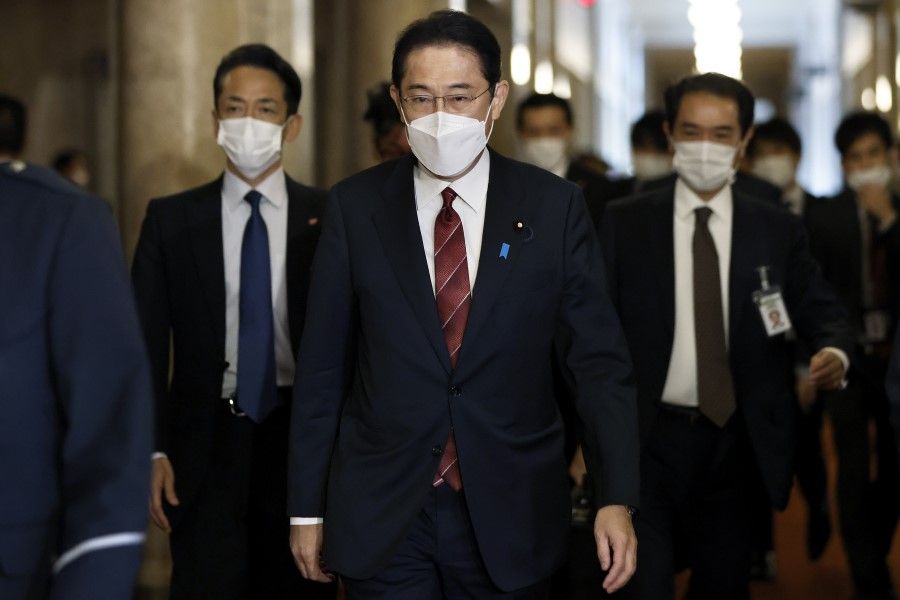
However, over the past 50 years, it has not always been smooth sailing for China-Japan relations, with both positives and negatives in tandem. Fifty years is a major anniversary, and given this significance, most of the Japanese elite and ordinary people - likewise in China - would probably want to take this rare opportunity to stabilise China-Japan relations.
Overall, the Kishida administration has inherited the diplomatic rhetoric of the Abe era. However, strengthening the Japan-US alliance alone is not enough to showcase Kishida's abilities; that would call for stable and growing Asian diplomacy, especially stable China-Japan relations to show results in its Asian diplomacy. In his policy speech to the 207th Session of the Diet on 6 December, Kishida clearly said he was aiming to build constructive and stable relations with China.
On a civilian level, at an event "Together for a Shared Future" held by the Chinese embassy in Japan to open an exhibition on the Beijing Winter Olympics, Japan Olympic Committee President Yasuhiro Yamashita and former Prime Minister Yasuo Fukuda said that Japan would send a sizeable delegation to the Winter Games. Indeed, when it comes to China-Japan relations, we should focus on the positives and seize opportunities. Going against the current calls for a spirit of effort and making things work.
